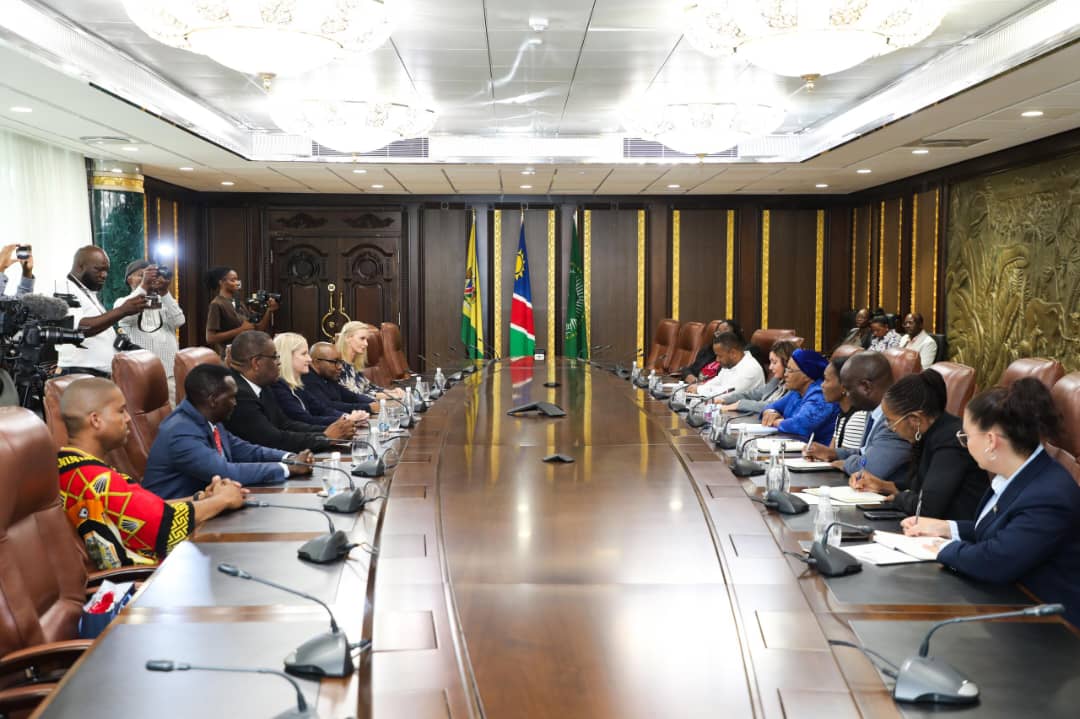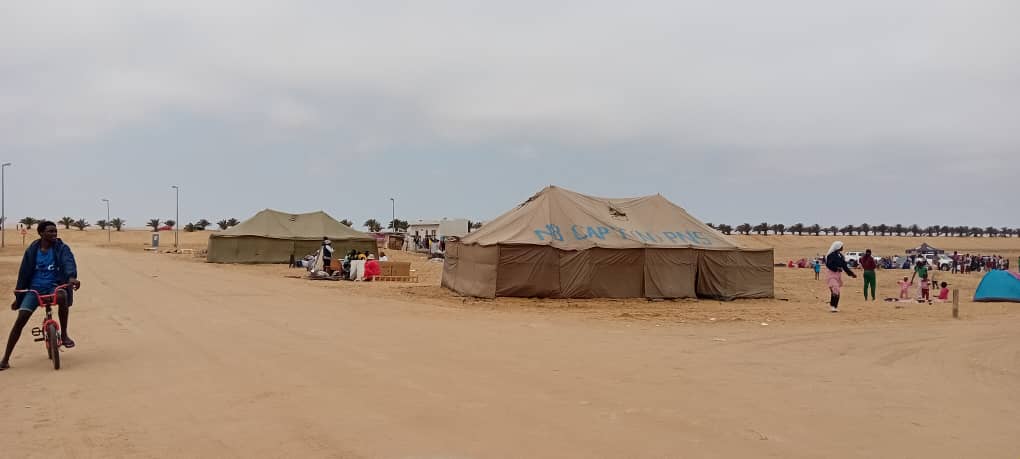GOVERNMENTS should put in place effective regulatory measures “to cut red tape” and facilitate smooth business operations for the private sector and investors, President Hifikepunye Pohamba said at the opening of an international investors’ conference in the capital yesterday.
“It is essential to have in place a responsive and efficient public service bureaucracy that understands the imperative of economic growth and support for business development,” President Pohamba said in his address to over 1 000 conference participants. “In this light, I call on our civil servants, especially permanent secretaries, to ensure that in carrying out their regulatory and administrative responsibilities, their decisions should be speedy, fair, objective and transparent.”The global economy had become increasingly competitive, he said.”Increased competition and integration of the global economy places demands on developing countries to implement strategies that will enable us to foster economic growth, create new employment opportunities and ensure that our economies remain vibrant.””How do we, as developing countries, respond to the challenging dynamics of the global economy? One point of departure is bilateral and regional co-operation among us.This will enable us to share experiences and adopt best practices for effective policy frameworks that can stimulate sustainable economic growth over a long term,” Pohamba said.”This calls for deliberate actions by governments to put in place effective regulatory measures to cut red tape.”The conference was called to fund projects in mining, power generation, infrastructure like roads and railways, telecommunications and tourism.According to Pohamba, governments have to put in place sound macro-economic policies, while ensuring peace and economic stability, creating a conducive environment for investments.”Namibia has adopted investor-friendly policies, highly competitive incentives and fiscal regimes,” he told delegates.Investors in Namibia could benefit from the country’s location as a strategic point of entry to southern African markets.The Walvis Bay port had been expanded and continued to grow, supported by a network of transport infrastructure into the interior and landlocked neighbours like Botswana, Zambia and Zimbabwe, the President said.In addition, Namibia was a member of the Southern African Customs Union (Sacu), which is negotiating Free Trade Agreements with Brazil, India, China and Nigeria, enhancing access to more international markets, strengthening Namibia’s attractiveness and competitiveness.”These factors as well as our Government’s firm commitment to maintain peace and the rule of law, should convince investors to invest in our country,” Pohamba said.”We expect investors to play an active role in the transfer of skills and technology through training of their employees and joint ventures with Namibian partners.”South African President Thabo Mbeki attended the opening and said investment had to reach smaller countries in southern Africa.Speaking of the cuff, Mbeki said the capital required for such investment was in the hands of the private sector.”We must work together very carefully with the private sector and listen to what they have to say.There must be no corruption and no Mr Ten Per Cent (bribery),” he said to strong applause.”In this light, I call on our civil servants, especially permanent secretaries, to ensure that in carrying out their regulatory and administrative responsibilities, their decisions should be speedy, fair, objective and transparent.”The global economy had become increasingly competitive, he said.”Increased competition and integration of the global economy places demands on developing countries to implement strategies that will enable us to foster economic growth, create new employment opportunities and ensure that our economies remain vibrant.””How do we, as developing countries, respond to the challenging dynamics of the global economy? One point of departure is bilateral and regional co-operation among us.This will enable us to share experiences and adopt best practices for effective policy frameworks that can stimulate sustainable economic growth over a long term,” Pohamba said.”This calls for deliberate actions by governments to put in place effective regulatory measures to cut red tape.”The conference was called to fund projects in mining, power generation, infrastructure like roads and railways, telecommunications and tourism.According to Pohamba, governments have to put in place sound macro-economic policies, while ensuring peace and economic stability, creating a conducive environment for investments.”Namibia has adopted investor-friendly policies, highly competitive incentives and fiscal regimes,” he told delegates.Investors in Namibia could benefit from the country’s location as a strategic point of entry to southern African markets.The Walvis Bay port had been expanded and continued to grow, supported by a network of transport infrastructure into the interior and landlocked neighbours like Botswana, Zambia and Zimbabwe, the President said.In addition, Namibia was a member of the Southern African Customs Union (Sacu), which is negotiating Free Trade Agreements with Brazil, India, China and Nigeria, enhancing access to more international markets, strengthening Namibia’s attractiveness and competitiveness.”These factors as well as our Government’s firm commitment to maintain peace and the rule of law, should convince investors to invest in our country,” Pohamba said.”We expect investors to play an active role in the transfer of skills and technology through training of their employees and joint ventures with Namibian partners.”South African President Thabo Mbeki attended the opening and said investment had to reach smaller countries in southern Africa.Speaking of the cuff, Mbeki said the capital required for such investment was in the hands of the private sector.”We must work together very carefully with the private sector and listen to what they have to say.There must be no corruption and no Mr Ten Per Cent (bribery),” he said to strong applause.
Stay informed with The Namibian – your source for credible journalism. Get in-depth reporting and opinions for
only N$85 a month. Invest in journalism, invest in democracy –
Subscribe Now!










